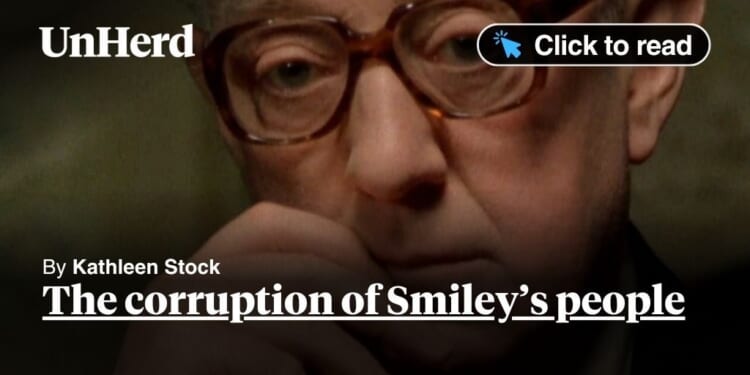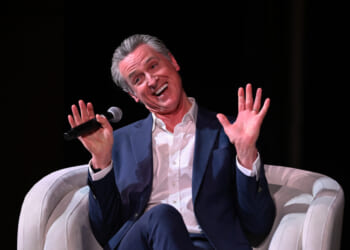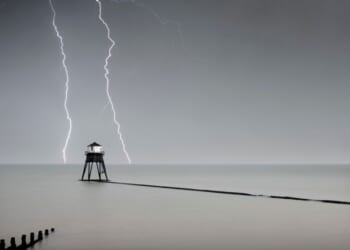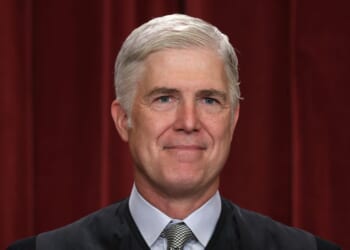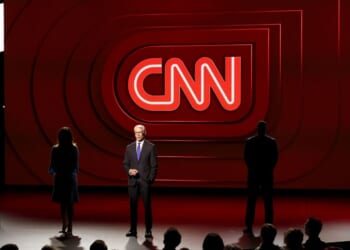For about 30 years, I have intermittently visited a secret world. When I’m walking on Hampstead Heath, I look for chalk marks on trees. I can’t cross Cambridge Circus without a mental nod to “the Circus” — the true headquarters of British intelligence, never mind that flashy interloper at Vauxhall Cross. For most people, there is little excitement to be found in the dingy hotels of Sussex Gardens, but I get a thrill when I book a room there; for I can hear George Smiley and Peter Guillam holed up next door, on the hunt for the service mole. It’s true that I don’t ever see them walking around Paddington — but then I wouldn’t, would I? By dint of their profession, they are good at blending in.
The ambivalent, paranoid John le Carré vibe is well suited to the present moment in a multipolar world — the feeling that previous certainties can’t be relied upon, and everything is slowly going to the dogs. The narrator in the Smiley books isn’t sure that the two sides fighting the Cold War are so very different: the West is capable of atrocities, betrayals, and fumbling cock-ups, just as its enemies are. These days, the logic works in reverse: maybe the West isn’t as bad as we thought; or maybe the alternative is worse. Either way, there is moral ambiguity and decay everywhere we look.
Like me, it seems that le Carré’s youngest son likes to live in the downbeat world his father created, and now he wants more people to join him there. Last year, Nick Harkaway – already a successful science fiction writer – published what is known in the trade as a “continuation novel” called Karla’s Choice. This filled in some of what George Smiley and other members of the Circus were getting up to in the mid-Sixties, between The Spy Who Came in From the Cold and Tinker Tailor Soldier Spy. This week, it was reported that Harkaway is encouraging other writers to bring “new stories into this same world”; for, he says, “the world of Smiley is richer and wider than the original books ever had a chance to show”.
Harkaway’s invitation is to be found in a book accompanying a new exhibition about his father, which opened this week at the Bodleian library. Oxford is the obvious place for such an event: Smiley’s “spiritual home”, as le Carré put it; the city where he himself spied on far-Left groups as a student, and where his double agent, Bill Haydon, first turned towards communism. Former intelligence officer Connie Sachs still sits there in her shabby front room, offering reminiscences of Moscow in exchange for whisky. Harkaway says he is trying to “open the gates” to such cloistered places, adding that since he has already “claimed the Smiley universe, the next person doesn’t have to be so afraid”.
“The ambivalent, paranoid John le Carré vibe is well suited to the present moment in a multipolar world.”
In the original Smiley universe, barriers to entry — social, political, physical — loomed large. At the end of The Spy Who Came In From the Cold, protagonist Alec Leamas dies trying to climb over the Berlin wall. A psychoanalyst would presumably have a field day with a son who jumps over the wall of the story-world belonging to his celebrated father, then opens the gates from inside to invaders — albeit that Harkaway says le Carré “implicitly” authorised him to do so before he died. Or maybe it’s just an extension of the passionate anti-Brexit stance Harkaway has taken elsewhere, again echoing concerns of his famous parent. No literary landscape is really an island; incomers can only do good; there is enough land here for all.
Karla’s Choice is certainly an entertaining ventriloquist act. There’s a familiar sort of plot, prioritising individual loyalty to people rather than to nations. There are the trademark bits of compressed dialogue, heavy with inhouse spy jargon, bluff schoolboy jokes, and English self-consciousness: what William Boyd has called the “Pall Mall clubman’s patois”. And there are also the weirdly emotional monologues, during which otherwise repressed characters suddenly unburden themselves inexplicably upon their embarrassed confessor, Smiley, who simply blinks a lot and purses his lips sepulchrally in return.
But there are also differences. I spotted a few anachronisms when I read Harkaway’s book: a reference to someone “feeling his religion”, and to the state exercising “coercive control”. More importantly, as others have noted, there is an absence of the biographical preoccupations that keep bubbling under in actual le Carré plotlines: real-life fury towards a feckless conman father, a mother who abandoned him at the age of five, humiliations wrought by the English public school system. In Harkaway’s telling, for instance, Smiley’s wife, Ann, is comprehensible and even sympathetic. She is not acting as she does in the original books, like a sadistic nymphomaniac cartoon. Smiley’s stuffed shirt colleagues are not slyly goading him about the state of his marriage on a daily basis. There isn’t the same feeling that the people around you could maliciously betray you at any time.
In short: without his father’s simmering psychological intensity to justify the latent melodrama, Harkaway’s book at times gets perilously close to camp pastiche. The son may have his own Oedipal issues — and don’t we all — but they are different from the father’s. And they make for a different sort of imaginary landscape, even if Cambridge Circus and the Bodleian are still present in both.
You might say: so what? New Miss Marple or James Bond books come out all the time. Continuation novels are just a lucrative version of fan-fiction, and many readers enjoy the results. And anyway, hasn’t le Carré’s vision been reinterpreted by the performances of Alec Guiness and his fellow actors in the masterly TV series from the Seventies and Eighties? Indeed, isn’t the writing of a continuation novel just another kind of adaptation? According to Harkaway, le Carré himself found Guinness’s performance “so overwhelming that he could no longer hear the character, only the actor”. Why then worry about new versions of old characters on the page?
But it’s one thing to interpret a character made of words for a visual medium; or even just to imaginatively slot the presence of George Smiley into your afternoon walk on Hampstead Heath. In both cases, you are making the original creation more vivid, and paying proper tribute to its owner. In contrast, by treating literary characters as things to be passed around to other writers and placed in interesting new positions, effectively you are implying their creator’s achievement was pretty limited to start with: most of the aesthetic value concentrated in parts to be extracted, and not in the unique and irreplaceable whole.
Naturally enough, Harkaway doesn’t see it this way. He gives us a vision of a fictional universe that is concrete and specific like the real one, containing “richer and wider” detail than his father could ever have conveyed on his own; as if both authors were like historians, giving their readers a partial glimpse of people and events already in existence. But in fact, a better analogy for what he is doing is with the forging of oral folk tales, each new teller adding to a collectively wrought world. The characters in Tinker Tailor Soldier Spy now have personal histories that include the embellishments of Harkaway, albeit that le Carré wrote that book shortly after Harkaway was born. If additional authors take up the invitation and place Smiley, Guillam, and co in fresh predicaments, their versions too will retrospectively inflect the narrative whole. And in theory, the contribution of the very latest skilful tale-teller might conceivably be as great as that of the first one — assuming you can even remember his name.
In practice, of course, it is unlikely to go this way. Not feeling a baleful parental eye upon them, other writers are less likely to be as fastidious as Harkaway in trying to get the characters right — though of course, AI will always be there to help. But in any case, what is “getting the characters right” once you have downgraded the originator to a mere collaborator in a shared project? In opening wide the gates of his father’s creation, Harkaway has invited potential vandalism, by people who don’t properly understand the culture there. Poor Smiley — it seems he really can’t rely on anything staying the same.

